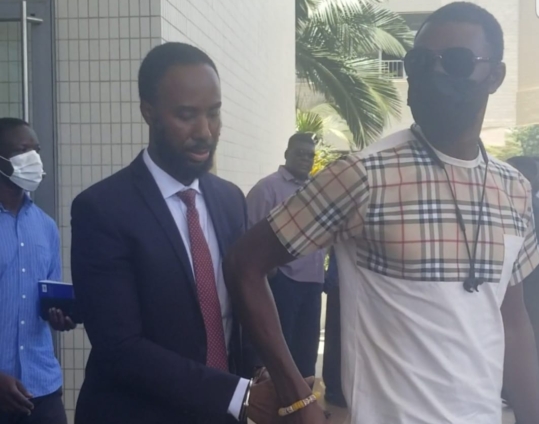The former head of one of the three main agencies constituting Ghana’s national security system is under trial for stealing public funds designated for intelligence operations.
He has written a letter from detention darkly hinting at two things:
1. The monies that his private companies received from national security accounts and other government agencies were to be used for sensitive intelligence and security operations.
2. Unless his continued trial and detention are halted, he shall be forced to disclose some of these operations, details of which could embarrass senior politicians from both major political parties.
He tried to insinuate that national security agencies bribed members of parliament to facilitate the passage of laws of interest to the government.
He is alleging that even the then opposition party, now ruling party, received funds, vehicles, and other forms of support from the national security agencies ahead of recent elections.
The stated intent of all these murky expenses is the cohesion and stability of the country.
In previous commentary, I have warned how the murky way in which national security operations are funded has led to the some of the few instances of overt embezzlement in Ghana. Ghana is a country where public officials rarely embezzle public funds. They tend, instead, to prefer kickbacks.
At some point, serious conversations must be had about the setup of the national security auditing regime. The auditor general is not currently fit for this purpose. In fact, it is not fit for tackling most organised modes of misusing public funds.
However, as far as the criminal charges against the former spy boss is concerned, this letter is irrelevant.
If national security agencies wish to set up a special corporate vehicle for confidential operations, why would they do so in the name of one of the seniormost spy bosses in the country? Highly implausible. Why are there no actual classified records of any of this?
If the national security establishment wants to efficiently disburse funds for “dirty operations”, why would it do so through illiquid real estate investments and the purchase of luxury items, for instance? How does that facilitate undercover payments for national security objectives?
Most vitally, the theories and allegations being urged on us by the former spy boss are up against the work of one of Ghana’s most formidable investigators, Raymond Archer. Even as a private citizen, his craft was of daunting precision. Now that he has the full apparatus of the security state at his beck and call, I would be very surprised if he will leave any gaps of the kind suggested by the former spy boss.
Even what fragments we know about the investigation so far, if put together, shows that many payments from the bank account of the shady companies set up by the former spy boss have been traced to purely commercial activities and numerous luxury purchases.
What has the buying of a lamborghini for a high-end car rental service, for instance, got to do with bribing MPs to pass laws in parliament favorable to the government?
Hence, while the letter from the former spy boss makes for titillating reading and raises serious concerns about potential rot in national security, I do not see any real impact on the substantive charges laid against him.
Furthermore, the cryptic way he has presented the information, to maximise its sensational value without presenting any actual evidence, means that it is not even usable by the anti-corruption agencies.
If he is alleging actual wrongdoing by the national security agencies, then he can present clearer, actionable, evidence to any of the anti-corruption agencies. Otherwise, this looks like an attempt to blackmail the state to back off under vague and veiled threats of embarrassing some important people.
Obviously, the state would give credence to the insinuations if it relented for even a second. My analysis is that, for that same reason, the letter will only encourage the prosecution to double up their efforts.
ALSO READ:



